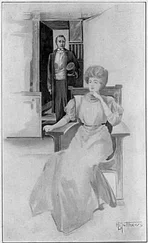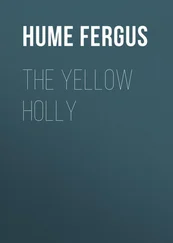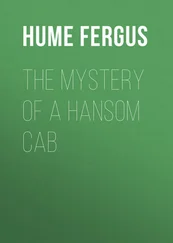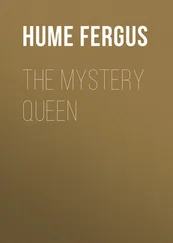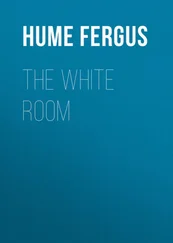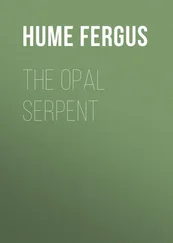Fergus Hume - The Third. Volume
Здесь есть возможность читать онлайн «Fergus Hume - The Third. Volume» — ознакомительный отрывок электронной книги совершенно бесплатно, а после прочтения отрывка купить полную версию. В некоторых случаях можно слушать аудио, скачать через торрент в формате fb2 и присутствует краткое содержание. Жанр: foreign_prose, на английском языке. Описание произведения, (предисловие) а так же отзывы посетителей доступны на портале библиотеки ЛибКат.
- Название:The Third. Volume
- Автор:
- Жанр:
- Год:неизвестен
- ISBN:нет данных
- Рейтинг книги:3 / 5. Голосов: 1
-
Избранное:Добавить в избранное
- Отзывы:
-
Ваша оценка:
- 60
- 1
- 2
- 3
- 4
- 5
The Third. Volume: краткое содержание, описание и аннотация
Предлагаем к чтению аннотацию, описание, краткое содержание или предисловие (зависит от того, что написал сам автор книги «The Third. Volume»). Если вы не нашли необходимую информацию о книге — напишите в комментариях, мы постараемся отыскать её.
The Third. Volume — читать онлайн ознакомительный отрывок
Ниже представлен текст книги, разбитый по страницам. Система сохранения места последней прочитанной страницы, позволяет с удобством читать онлайн бесплатно книгу «The Third. Volume», без необходимости каждый раз заново искать на чём Вы остановились. Поставьте закладку, и сможете в любой момент перейти на страницу, на которой закончили чтение.
Интервал:
Закладка:
For some months all went well at The Laurels, and it seemed as though the Larchers were devoted to one another. But this was only outwardly, for the character of Julia developed rapidly after marriage into that of a vain, frivolous woman, eager of admiration, extravagant as regards dress, and neglectful of the infant son. Larcher, a thoroughly domesticated man, greatly resented the attitude taken up by his wife, and the resentment led to frequent quarrels. He was annoyed by her frivolity and continuous absence from home; while she began to dislike her grave husband, who would have made her – as she expressed it – a mere domestic drudge. But the pair managed to hoodwink the world as to their real feelings to one another, and it was only when the trial of Mrs. Larcher came on that the truth was revealed. In all Kent there was no more unhappy home than that at The Laurels.
To make matters worse, Mark Jeringham paid a visit to Horriston, and having known Mrs. Larcher from childhood, naturally enough became a frequent visitor. He was everywhere at the heels of the former belle of Cheltenham, who encouraged him in his attentions. Larcher remonstrated with his wife on her folly, but she saucily refused to alter her line of conduct. But for the scandal of the thing Larcher would have forbidden Jeringham the house; and, to mark his disapprobation, gave him the cold shoulder on every occasion. Nevertheless, this inconvenient person persisted in thrusting himself between husband and wife, to the anger of the former and the delight of the latter. The introduction of this third element only made matters worse.
The house was divided into camps, for Mona supported her mistress in her frivolity, and, indeed, seemed herself to have an admiration for handsome Mark Jeringham, who was very generous in money matters. Denis, in whose eyes his master was perfect, hated the interloper as much as Larcher, and loudly protested against the attention of Mona and his mistress. Another friend who supported Larcher was Francis Hilliston, then a gay young lawyer of thirty-five, who often paid a visit to Horriston. He also frequented The Laurels, but was much disliked by Mrs. Larcher, who greatly resented his loyal friendship for her husband. Things were in this position on the 23d of June, 1866, when events occurred which resulted in the murder of Captain Larcher, the disappearance of Jeringham, and the arrest of Mrs. Larcher on a charge of murder.
A masked ball in fancy dress was to be given at the Town Hall on that night, and hither Mrs. Larcher was going as Mary, Queen of Scots, accompanied by Jeringham in the character of Darnley. George Larcher refused to be present, and went up to London on the night in question, leaving his faithful friend Hilliston to look after his matrimonial interests at the ball. Before he left a terrible scene took place between himself and his wife, in which he forbade her to go to the dance, but she defied him, and said she would go without his permission. Whereupon Larcher left the house and went up to London, swearing that he would never return until his wife asked his pardon and renounced the friendship of Jeringham.
Now, here began the mystery which no one was able to fathom. Mrs. Larcher went to the ball with Jeringham, and having, as she said to Hilliston, who was also at the ball, enjoyed herself greatly, returned home at three in the morning. The next day she was ill in bed, although she had left the Town Hall in perfect health, and Mark Jeringham had disappeared. Larcher was not seen in the neighborhood for five days, and presumably was still in London; so during his absence Mrs. Larcher kept her bed. Then his body, considerably disfigured, was found at the mouth of the river Sarway, some four miles down. Curious to state it was clothed in a fancy dress similar to that worn by Jeringham on the night of the ball.
On the discovery of the body public curiosity was greatly excited, and a thousand rumors flew from mouth to mouth. That a crime had been committed no one doubted for a moment, as an examination proved that George Larcher had been stabbed to the heart by some slender, sharp instrument. The matter passed into the hands of the police, and they paid a visit to The Laurels for the purpose of seeing what light Mrs. Larcher could throw on the matter. At this awful period of her frivolous life Francis Hilliston stood her friend, and it was he who interviewed the officers of the law when they called.
Mrs. Larcher was still in bed, and, under the doctor's orders, refused to rise therefrom, or to receive her visitors. She protested to Hilliston, who in his turn reported her sayings to the police, that she knew nothing about the matter. She had not seen her husband since he left her on the 23d of June, and no one was more astonished or horror-struck than she at the news of his death. According to her story she had left the ball at three o'clock, and had driven to The Laurels with Jeringham. He had parted from her at the door of the house, and had walked back to Horriston. His reason for not entering, and for not using the carriage to return, was that he did not wish to give color to the scandal as to the relations which existed between them, which Mrs. Larcher vowed and protested were purely platonic.
Furthermore, she asserted that her illness was caused by a discovery which she had made on the night of the ball: that Mona Bantry was about to become a mother, and to all appearance she believed that the father of the coming child was none other than her husband. Far from thinking that he had been murdered, she had been waiting for his return in order to upbraid him for his profligacy, and to demand a divorce. Mona Bantry had disappeared immediately after the discovery of her ruin, and Mrs. Larcher professed that she did not know where she was.
This story, which was feasible enough, satisfied the police authorities for the moment, and they retired, only to return three days later with a warrant for the arrest of Mrs. Larcher. In the interval a dagger had been found in the grounds of The Laurels, on the banks of the river, and, as it was stained with blood and exactly fitted the wound, it was concluded that with this weapon the crime had been committed. Inquiry resulted in the information being obtained that Mrs. Larcher, in her character of Mary, Queen of Scots, had worn this dagger on the night of the ball. Hence it was evident, so said the police, that she had killed her husband.
The theory of the police was that Captain Larcher had returned from London on the night of the ball, and had witnessed the parting of his wife and Jeringham at the door. Filled with jealous rage he had upbraided his wife in the sitting room, the window of which looked out on the cliff overhanging the river. In a moment of fury she had doubtless snatched the dagger from her girdle and stabbed him to the heart, then, terrified at what she had done, had thrown the body out of the window, trusting that the stream would carry it away, and so conceal her crime. This the river had done, for the body had been discovered four miles down, where it had been carried by the current. As to the dagger being in the grounds in place of the room, the police, never at a loss for a theory, suggested that Mrs. Larcher had stolen out of the house, and had thrown the dagger over the bank where it was subsequently discovered.
Mrs. Larcher asserted her innocence, and reiterated her statement that she had not seen her husband since the day of the ball. He had not returned on that night, as the servants could testify. The only domestics who had not retired to bed when she returned at three o'clock were Mona and Denis. Of these the first had gone away to hide her shame, and all inquiries and advertisements failed to find her. But at the trial Denis – much broken down at the ruin of his sister – swore that Captain Larcher had not returned from London on that evening, and that Mrs. Larcher had gone straight to the sitting room, where she first made the discovery of Mona's iniquity, and then had afterward retired to bed. Mrs. Larcher asserted that the dagger had been lost by her at the ball, and she knew not into whose hands it had fallen.
Читать дальшеИнтервал:
Закладка:
Похожие книги на «The Third. Volume»
Представляем Вашему вниманию похожие книги на «The Third. Volume» списком для выбора. Мы отобрали схожую по названию и смыслу литературу в надежде предоставить читателям больше вариантов отыскать новые, интересные, ещё непрочитанные произведения.
Обсуждение, отзывы о книге «The Third. Volume» и просто собственные мнения читателей. Оставьте ваши комментарии, напишите, что Вы думаете о произведении, его смысле или главных героях. Укажите что конкретно понравилось, а что нет, и почему Вы так считаете.

